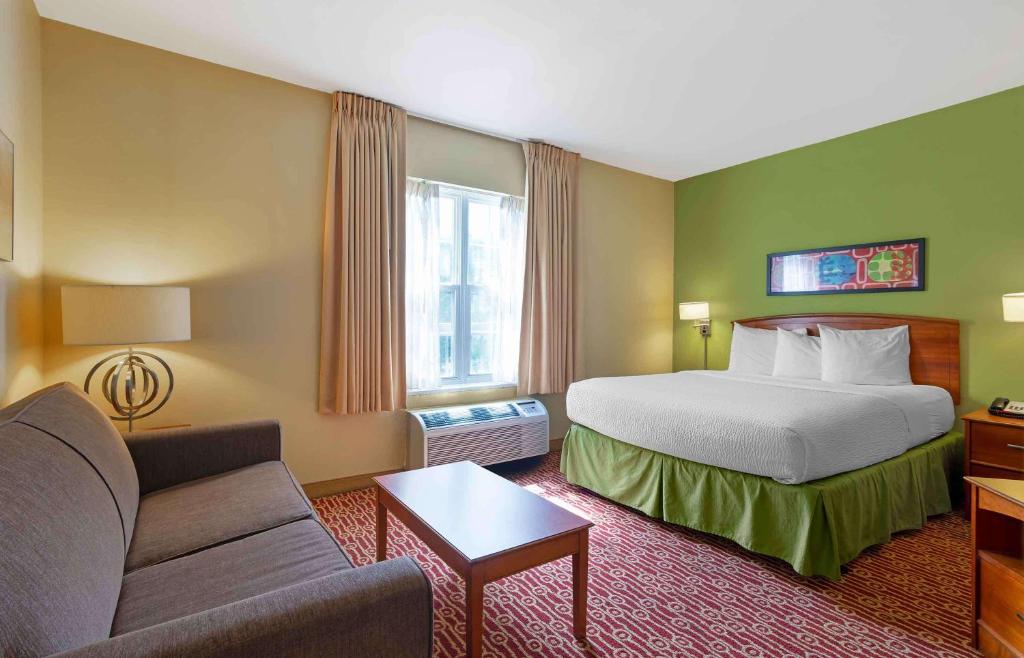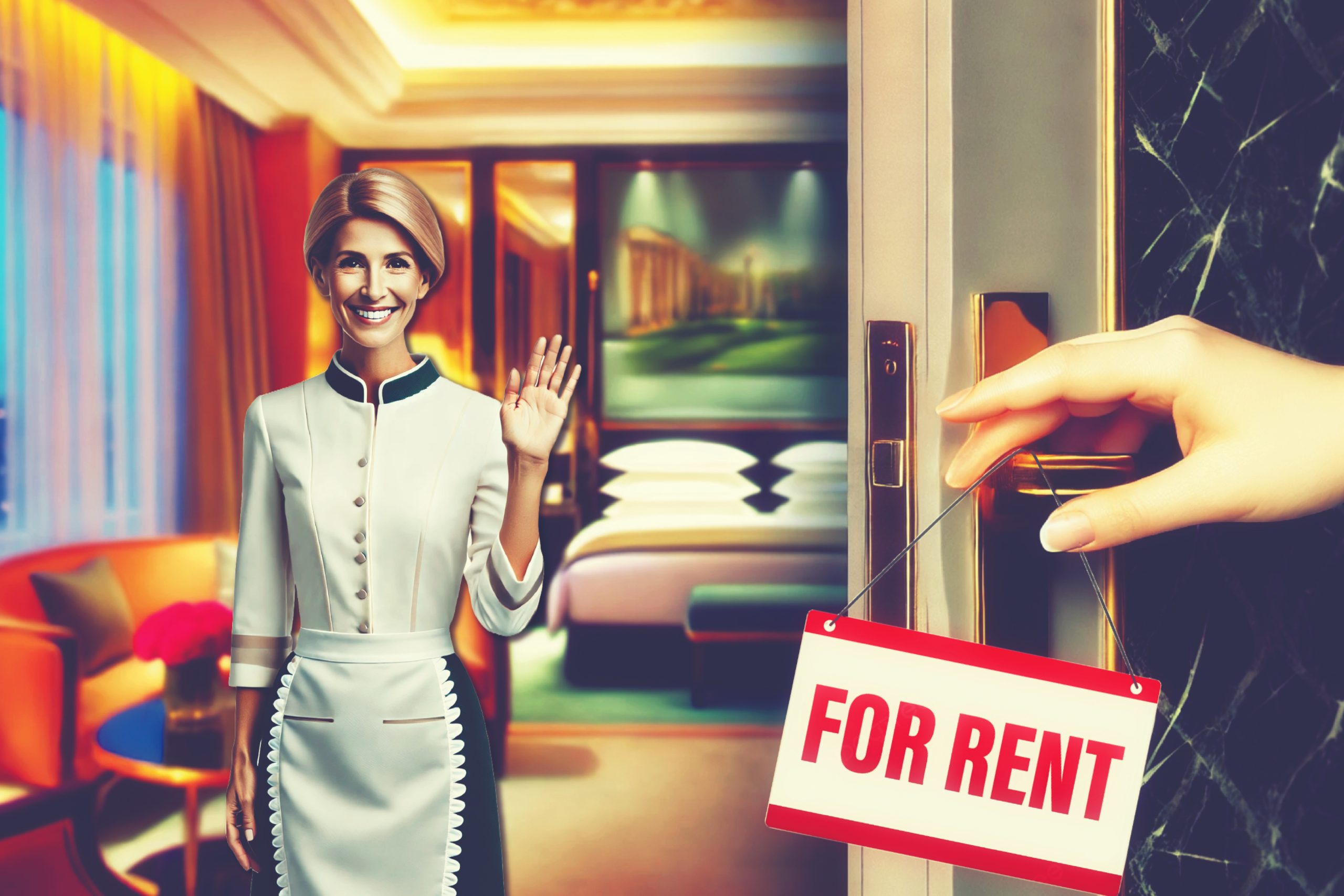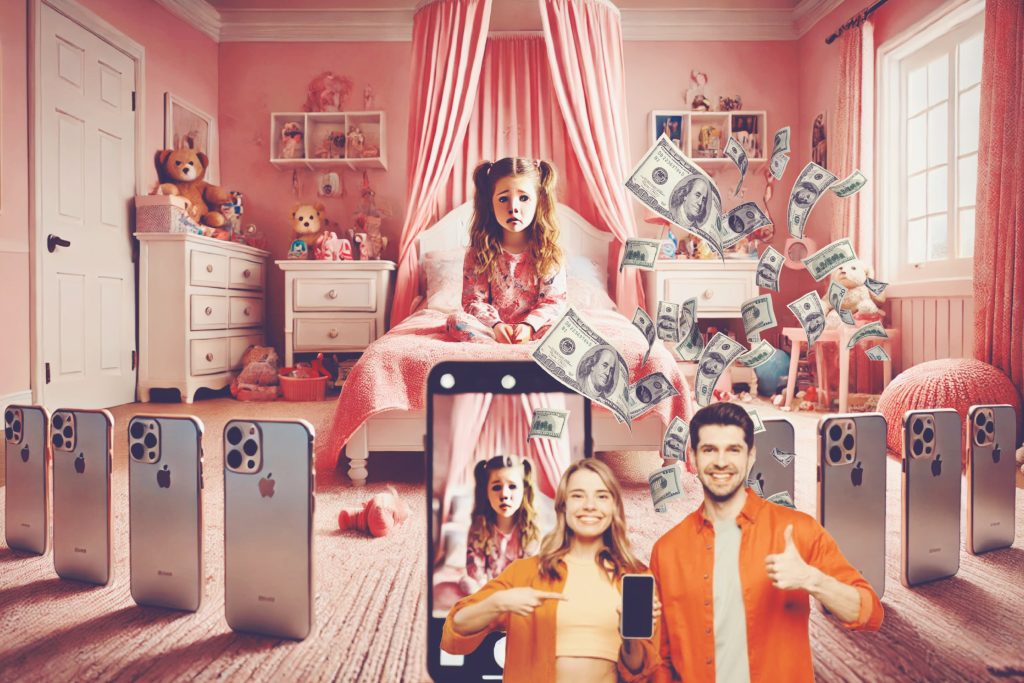Welcome to the world of ‘hotel life’—where influencers make living in hotels look like an endless vacation, complete with room service, fluffy robes, and zero utility bills. But let’s cut through the Instagram filters and get down to the nitty-gritty—are we talking about a genuine lifestyle hack here, or just another influencer fantasy that leaves your bank account screaming for mercy?
So, the idea is simple: why bother with leases, landlords, or pesky rent hikes when you can simply check into a hotel and live your best life full-time? You’ve seen the TikToks—”for less than rent, I’m living in a luxury suite!”
These videos are all over the internet, and influencers swear it’s cheaper than renting an apartment. But is this trend as financially awesome as it claims to be, or are we being bamboozled by cleverly crafted content and hotel marketing ploys?
The million-dollar question goes like this: is hotel living actually affordable? Let’s check in and find out. To truly discover if living in a hotel is cheaper than an apartment, we’ve got to dive deeper than an influencer’s Insta fantasy. Sure, hotels offer some perks—no utilities, housekeeping services, and many times you also get great amenities like pools, gyms, and Wi-Fi that you won’t find in most rentals. But as with everything in life, there’s always a catch.
Let’s start by getting a handle on the difference between hotel rates and rent. We will start by comparing long-term stay rates at various hotels to the average apartment rental costs in your city.
The average monthly cost for an extended stay at hotels like Extended Stay America or similar chains ranges between $1,500 and $3,000, depending on the location and amenities offered. In major cities, prices can fluctuate widely based on demand, seasonality, and the specific hotel chain. For example, in cities like Chicago or Atlanta, a stay at Extended Stay America might cost around $2,100 to $2,500 per month. Mid-range options like Marriott’s Residence Inn or Homewood Suites could go higher, often averaging $2,500 to $4,000 per month. If you’re looking at more luxury options, the price can climb to $5,000 or more per month.

There are some excellent resources online packed with everything you need. Just click here.
However, are these numbers realistic once you factor in all the extras? Let’s take a generalized look. Keep in mind, this isn’t some hardcore scientific breakdown—just a rough idea of what you might expect. We’re getting a ballpark figure here, folks, so take it with a grain of salt, but it’s enough to give you a sense of whether “hotel life” is really worth it.
When comparing the costs of living in a hotel versus renting an apartment in major US cities like Atlanta and Chicago, the numbers get interesting.
In Atlanta, the average monthly rent for a one-bedroom apartment hovers around $1,683, while in Chicago, it’s about $1,850. Meanwhile, staying at an extended-stay hotel like Extended Stay America in these cities ranges from $2,100 to $3,300 per month.

Now, here’s where things take a turn: hotels cover utilities, internet, and even that gym membership, so on paper, hotel living could stack up pretty close to apartment life—especially in those swanky areas. But if you’re aiming for the budget end of hotel pricing, you might actually save a little. Go for the higher-end hotels, though, and you’re definitely shelling out a lot more. While living in a hotel comes with built-in perks, it can still hit your wallet harder than renting an apartment. But let’s not stop at rent alone—when you compare the full cost of hotel living vs. apartment life, you’ve got to throw in extras like utilities, internet, and that ever-important gym membership. We’re talking the whole package here.

Utilities: On average, monthly utility costs (electricity, water, gas, and internet) for a U.S. household amount to about $610. This includes around $135 for electricity, $113 for gas, $64 for internet, and $39 for water. Gym Membership: The average cost for a no-frills gym membership is approximately $50-$60 per month. So, if you’re renting an apartment in cities like Atlanta or Chicago, your total monthly living costs would include:
- Rent: $1,683 (Atlanta) to $1,850 (Chicago)
- Utilities & Internet: ~$610
- Gym Membership: ~$50 (assuming the apartment complex doesn’t have a gym)
So, you’re looking at about $2,343 in Atlanta and $2,510 in Chicago for apartment living, all things considered. On the flip side, extended-stay hotels in these cities range from $2,100 to $3,300 a month.
But wait, there’s more. In cities like Atlanta and Chicago, hidden hotel fees can stack up fast. For example, resort fees range between $20 and $50 per night, and parking fees can add an extra $20 to $50 per day, depending on the location. In-room safes, mini-bar restocking, and housekeeping gratuities are other hidden charges that can sneak in too. On top of that, if you’re living in a hotel, you’ll likely rely more on eating out or ordering room service. On average, dining out costs around $15 to $20 per meal in cities like Atlanta and Chicago, meaning a month’s worth of meals could easily rack up to $900 to $1,200 if you eat out for most of your meals.

Factoring in these hidden costs, hotel life can quickly become more expensive than it first appears, potentially tipping the scales in favor of renting an apartment—unless you’re willing to manage a more minimalist lifestyle.
So, you’ve done the homework, scouted out the perfect spot, and you’re ready to make the leap into hotel life. But let’s get real for a second—what about everyday logistics? Can you get your Amazon packages delivered to the hotel? How do you keep your bank statements in check? Living full-time in a hotel might sound dreamy until you realize managing mail can be a major headache. Sure, P.O. boxes are an option, but it’s not the same as having a stable address—and it’s one more thing to pay for.
And then there’s the question of your driver’s license. Hate to break it to you, but using a hotel address on your license? Yeah, that’s a no-go. Most US states require a permanent residential address on your ID because, well, a hotel isn’t exactly considered a long-term home. It’s temporary by nature, and the DMV won’t buy into your extended-stay lifestyle as “permanent.”
So, you’re still thinking about trading in that traditional apartment for the hotel life. But is this really a long-term vibe? Mentally and financially, is living out of a suitcase really all it’s cracked up to be?
It probably is—if you can afford to swing this magical, enchanting hotel stay like it’s no big deal.
But let’s get back to reality, shall we? Sure, influencers make it all look like a dream—hopping from one chic hotel to the next—but here’s the deal: long-term hotel living might mean sacrificing personal space, feeling unrooted, and struggling to build any kind of “home base.” And what happens when that breakfast bar you once loved starts to feel like a stale routine and all you want is to sink into your own cozy couch with an iPad in one hand and a strong coffee in the other? Reality check: that’s when the hotel fantasy starts to fade.
So, if ‘hotel life’ isn’t everything it’s hyped up to be, why is it blowing up on your For You Page? Simple: the power of influencer marketing.
@dinbinness What’s it like to live in a hotel? 🏨 Living in a hotel can be a luxurious and refreshing experience 🛎️. 🍳 Enjoy a rich and varied breakfast every morning: fresh fruits 🍉, pastries 🥐, eggs, cheeses 🧀, and cereals ☕. 💪 The gym is well-equipped with modern machines: treadmills, exercise bikes 🚴, weights, and more. Perfect for a refreshing workout 🚿. 🛌 Room service for maximum comfort: meals, snacks, and drinks 🍔🥤 available anytime. 🍸 In the evening, the open bar offers cocktails, wines 🍷, and beers 🍺, in a friendly and pleasant atmosphere. #HotelLife #DailyLuxuries #UltimateComfort #LivingInAHotel #GoodLife
♬ Barbaras Rhabarberbar – Bodo Wartke & Marti Fischer
Don’t underestimate how much of this trend is fueled by influencers.

Hotels are partnering with them to dish out discounted stays—or even free ones—in exchange for content that makes their property look like the ultimate dream. That influencer you’re seeing living in a “$1,500 a month hotel suite”? Yeah, that’s probably an influencer-only deal, not what you’d actually pay. Remember, most of what you see on the internet is too good to be true and an illusion. That goes for “hotel life” as well.
So, at the end of the day, is “hotel life” really worth it? Honestly, it’s one of those trends that works in theory but falls apart in practice—at least for the average person. Influencers can float effortlessly through luxe suites, thanks to their big bank accounts and cozy partnerships with hotels, but for the rest of us? We’re probably kicking back at the Hampton Suites, which isn’t exactly the ‘living large’ vibe they’re selling.
@laura.kaufmanrealestate What its like Living in a Hotel in LA #hollywood #luxuryhotels #lalifestyle
♬ original sound – Laura.KaufmanRealEstate
Sure, hotel life sounds glamorous, but when you add up the actual costs, the limitations, and that whole ‘no permanent address’ thing, the fantasy starts to lose its shine. For most people, ‘hotel life’ might just be… well, a fantasy.
Is it cheaper to live in a hotel? Maybe for a short stint, but for long-term living, you’re better off sticking with a cozy apartment—no Instagram filter required.
Till next time, be wickedly wonderful.
Sources:







You are comparing it to an apartment. Compare it to a house and equity built over decades. Wow, suddenly living in a bed-bug hotel isn’t such a good idea. And you lose the mortagage write-off as well.
If you own nothing and are happy, it’s a real option. If you’ve got books and kitchen gadgets and old family knick-knacks and some old clothes and more books and a couple of suitcases and your old fat clothes and car wash kit and a set of good dishes and more books, then it’s hard to fit into a suite. If you have pets and like to do a little gardening or even want to open a window to real air, good luck.
Why are we being subjected to these AI-generated images?